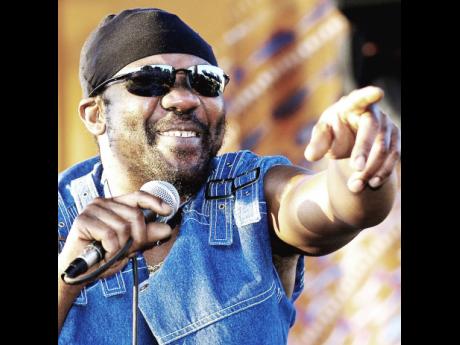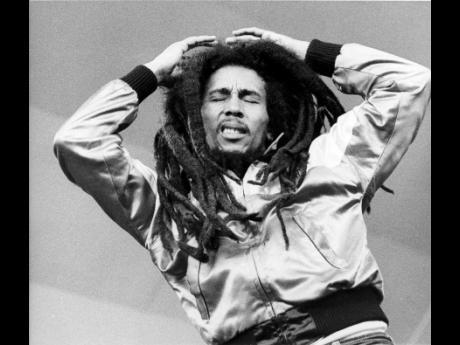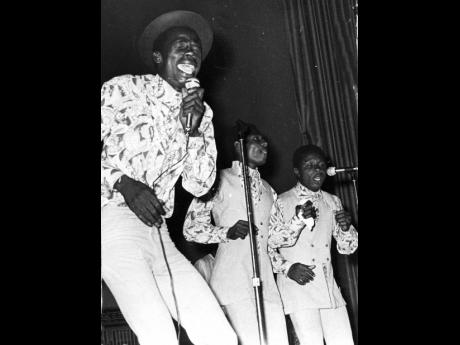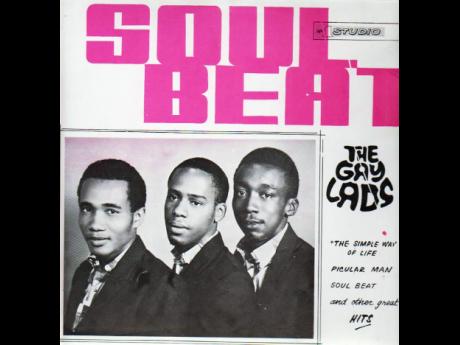The Music Diaries | The rock steady era
Jimmy Cliff, Bob Marley, and Frederick 'Toots' Hibbert were mentioned in last week's article as being largely responsible for placing reggae music in the international spotlight. Consequently, a few weeks ago, the United Nations Educational Scientific and Cultural Organisation (UNESCO) included the genre in its list of cultural treasure that must be safeguarded.
Two of these gentlemen Hibbert and Marley - also had seminal links with the rock steady genre from which reggae evolved, while Cliff had virtually transitioned from ska to reggae, without any rock steady song of note.
Marley, for his part, enjoyed the most lucrative period of his pre-Island Records days with a series of extraordinarily popular rock steady hits at the end of 1966. This, on the heels of his return from Delaware in the United States, after frustrated by meagre remuneration from Studio One, he was driven to make the move to 'greener pastures' shortly after marrying Alpharita Anderson (Rita Marley) in February of that year. While working at odd jobs in Delawre, Marley had dreams of regrouping the Wailers there and suggested that his two friends join him. The suggestion, however, fell on deaf ears, and The Gong, as Bob is sometimes called, was back in Jamaica by year end with new ideas on the way forward for the group.
Becoming their own independent producers, establishing their own record label (Wail 'n' Soul 'm'), and writing two songs while overseas, headlined the ideas that Marley had for his renewed thrust for the advancement of the group. Bunny and Peter were previously thinking along the same lines, and so with a unified stand, they approached Studio One boss Clement Dodd, for paid studio time as independent producers to record the two songs (an unprecedented occurrence in the history of Studio One). The songs recorded were the rock steady pieces Freedom Time and Bend Down Low. The latter became a big seller and placed the group on firm financial footing.
Moving from Studio One to West Indies Records in 1967, the group again recorded in a rocksteady style. Those who were around at the time may never forget the sweet tune that came from Nice Time, Hypocrites, Mellow Mood, Bus Them Shut, Stir It Up, Don't Rock My Boat, and Thank You Lord.
Backed by some of the best musicians in the land Jackie Jackson on bass; Hugh Malcolm on drums; Gladstone Anderson on piano; Lyn Taitt on guitar; Johnny Moore on trumpet; and Vin Gordon on trombone - the Wailers indulged in a prayer of thanksgiving on the last cut as they sang:
"Thank you Lord for what you've done for me.
Thank you Lord for what you're doing now.
Thank you lord for every little thing.
Thank you lord for you made me sing.
Say I'm in no competition.
But I made my decision.
You can keep your opinion.
I'm just calling on the wise man's communion."
Toots Hibbert
Frederick 'Toots' Hibbert, who missed most of the rock steady era owing to his incarceration at the Richmond Farm Prison for marijuana possession, was released just in time to record the rock steady piece - 5446 Was My Number for Beverley's Records in 1967. According to Hibbert, he wrote the song while in the correctional centre not only to reveal some of his experiences there, but to prove that he was innocent. The song, which is ranked among the best that the early rock steady and reggae era had to offer, remains Toots' signature recording and his biggest hit ever.
Other artistes of note that had seminal links with rock steady were Ken Boothe, Alton Ellis, Delroy Wilson, Dobby Dobson, Hopeton Lewis, Bob Andy, and Marcia Griffiths. The groups The Melodians, The Techniques, The Paragons, The Gaylads, The Jamaicans, and The Heptones belonged to an exclusive fraternity of three-part harmony singers that ruled the rock steady era in 1967 and '68.
The Melodians (Brent Dowe, Tony Brevett, Trevor McNaughton), were well known for the hits Swing And Dine, Little Nut Tree, and You've Caught Me Babe. The Techniques, consisting of Winston Riley, Bruce Ruffin, and Pat Kelly, hit hard with You Don't Care, There Comes A Time, and Man Of My Word. The Paragons, with John Holt, Tyrone Evans, and Howard Barrett, had hits like Happy Go Lucky Girl, Only A Smile, The Tide Is High, and Talking Love. The Gaylads, who sang on the enduring hits Hard To Confess, That's Life, and Love Me With All Your Heart Girl. The Heptones exploded in the rock steady era with Party Time, Pretty Looks Isn't All, and Book of Rules. And surely, we could never forget the Jamaicans larger-than-life recording of 1967 - Things You Say You Love, You're Gonna Loose.





